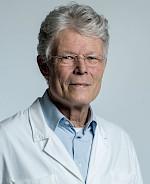
Otorhinolaryngology (ENT)
Ear, Nose and Throat medicine (ENT) is also known as otorhinolaryngology and comprises three areas which are, in themselves, highly specialised.
Diseases of the ear, nose and throat
There are specialized ENT physicians who, for example, work predominantly as rhinologists, ear specialists or voice specialists. However, the ears, nose and throat are closely related anatomically or functionally. For this reason, the ORL doctor usually includes all areas in the diagnosis.
Hearing complaints
Diseases of the auricle, the auditory canal and the middle ear can often be treated well with medication or physical therapy. Sometimes, however, surgery is necessary. These include, for example: tube lining, eardrum closure and ear rehabilitation for certain forms of inflammation, as well as hearing improvement surgery in general.
If the nerve cells of the inner ear or the organ of balance are affected (e.g. tinnitus, age-related hearing loss, vertigo), on the other hand, causal therapy is not always possible.
Sluggish breathing
Nasal breathing obstruction, chronic rhinitis and facial pressure may be related to deformities of the nasal framework (e.g. deviated septum) or to ventilation disorders of the paranasal sinuses (sinusitis). If conservative measures such as the use of nasal spray are not sufficiently effective, surgical intervention can usually help.
Septoplasty, correction of the entire nasal framework (rhinoplasty) and endoscopic sinus surgery are among the most common operations in ENT medicine.
Swallowing problems and sore throat
Problems swallowing, sore throat and hoarseness are also typical symptoms that lead to the ORL doctor. With modern endoscopes, not only changes within the nasal cavity can be viewed in detail in the ENT practice. This technique also allows inspection of the entire pharynx and larynx. In this way, pathological mucosal changes can be detected and treated at an early stage.
Snoring
Snoring is not always just a noise nuisance. It can also affect the quality of sleep and cause secondary diseases. An ENT medical examination is part of the clarification, which is particularly necessary if nocturnal breathing pauses and daytime sleepiness are reported.







